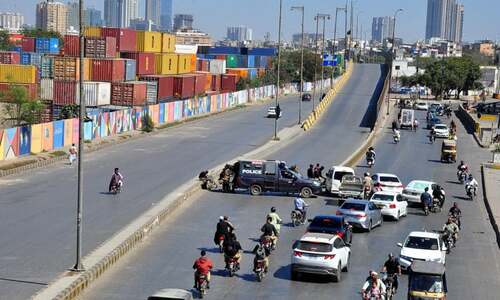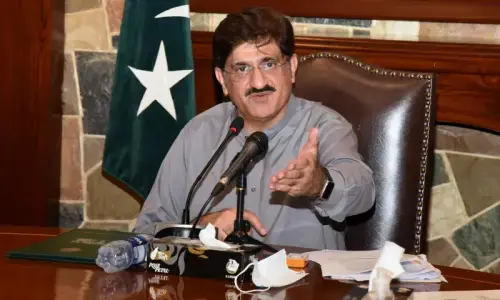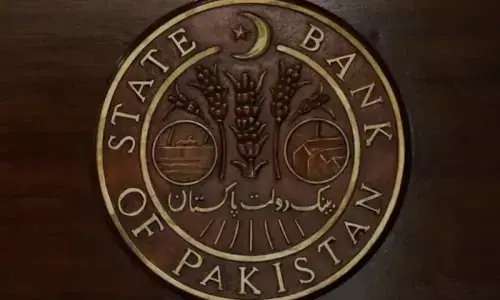
HASRAT Mohani is that odd one out that makes you think over and over before saying anything about him. He was a strange blend of Islam and communism, orthodoxy and modernism, the classical and the new.
A poet, politician, journalist, researcher and literary critic, on one hand Hasrat staunchly followed the tenets of Islam and went to perform Haj several times, but on the other he regularly attended the Mathura festival, celebrated by Hindus to commemorate the birth of Krishna. This self-contradictory behaviour is evident in his literary works and his political activities as well.
Hasrat appeared to be very orthodox in his appearance, with a beard and a cap, but wrote Urdu ghazals that are among the finest examples of Urdu’s lyrical love poetry. In fact, he is among the few poets who revived Urdu ghazal in the 20th century. On political front, first he joined the Indian National Congress, then joined All India Muslim League and was, at the same time, a very active member of Progressive Writers’ Association (PWA).
Roushnai is an impressionistic history of progressive writers’ movement in India, written by Sajjad Zaheer, one of the pioneers of progressive literary movement in the subcontinent. In Roushnai, Sajjad Zaheer has described in a very interesting way how Hasrat Mohani unintentionally torpedoed a resolution against “obscenity”. The PWA had tried to table a resolution condemning and disowning “obscenity” in one of its conferences, as the general impression in literary world back then was perceived to be rather against progressives and many believed what progressives wrote fell within the ambit of being “obscene”. Interestingly, here Sajjad Zaheer has condemned even Manto for writing “obscene” literary pieces (Roushnai, Maktaba-i-Daniyal, Karachi, 1986, page 369).
Hasrat Mohani was the only vocal critic of the resolution and it could not get approved because of his opposition. Hasrat thought it was difficult to define “obscenity” and the resolution must also say that a “delicate lasciviousness” was allowed in literature, or something to that effect may be added. Many tried to convince Hasrat that while condemning obscenity, allowing “delicate lasciviousness” would sound ridiculous. But he insisted and the resolution had to be withdrawn. Such was Hasrat’s point of view and his determination.
Syed Fazl-ul-Hasan Hasrat Mohani was born in Mohan, a town in district Unnao, UP. Hasrat Mohani’s year of birth is often quoted as 1875, but as per authentic sources he was born in 1298 Hijri, which corresponds to 1880-81. Hasrat received both oriental and Western education at his school in Fatehpur Haswah, a town near Kanpur. In addition to Persian and Arabic, he was taught English. In Haswah, he found himself in literary company and polished his poetic talent. Hasrat was educated at M.A.O. College, an educational institute established by Sir Syed Ahmed Khan at Aligarh, and that was to become Aligarh Muslim University later.
Aligarh played a vital role in Hasrat’s upbringing and here he took part in literary and political activities. In 1903, Hasrat did his BA, but before that he had been expelled from the college on three occasions for his criticism of the British government’s policies.
In July 1903, Hasrat launched monthly Urdu-i-mu’alla, one of the most prestigious and remarkable magazines in the history of Urdu literature. The magazine began some very popular and significant series, serialising some classical divans of Urdu, biographical notes and critical reviews on Urdu [poetry and poets]. Titled Tazkirat-ush-shuara, the series was edited by Prof Shafqat Rizvi and published by Idara-i-Yadgar-i-Ghalib, Karachi, some 20 years ago. A rare feat indeed, as complete record of Urdu-i-mu’alla is not available under one roof in any library either in India or Pakistan. Hasrat published political articles as well, emphasising Muslims to join the Congress and explaining that “there was very little difference between Islam and communism”. Once he wrote that, as quoted by Imdad Sabri, “Islam’s point of view on capitalism is even stricter than communism’s”.
Policies pursued by Urdu-i-mu’alla and Hasrat were simply not acceptable either to conservative Muslims or the British government. In 1908, Hasrat was arrested for publishing an article that criticised British policy in Egypt. The article was penned by a student of M.A.O. College, but Hasrat did not name the real author and accepted the responsibility. He was imprisoned for about two years. In 1916, Hasrat was arrested again.
He had joined the Indian National Congress and had demanded ‘complete freedom’ from the British during a Congress meeting in 1921 in Ahmadabad. But the Congress did not approve of it. Ever since then Hasrat could not bring himself to terms with the Congress and quit it in 1928. He then joined the All India Muslim League but differed on many occasions from the party policy. He did not migrate to Pakistan after independence and died in Lucknow on May 13, 1951.
His other books are Sharh-i-Divan-i-Ghalib, Nikaat-i-sukhan and Kulliyat-i-Hasrat.
Published in Dawn, May 8th, 2018
































